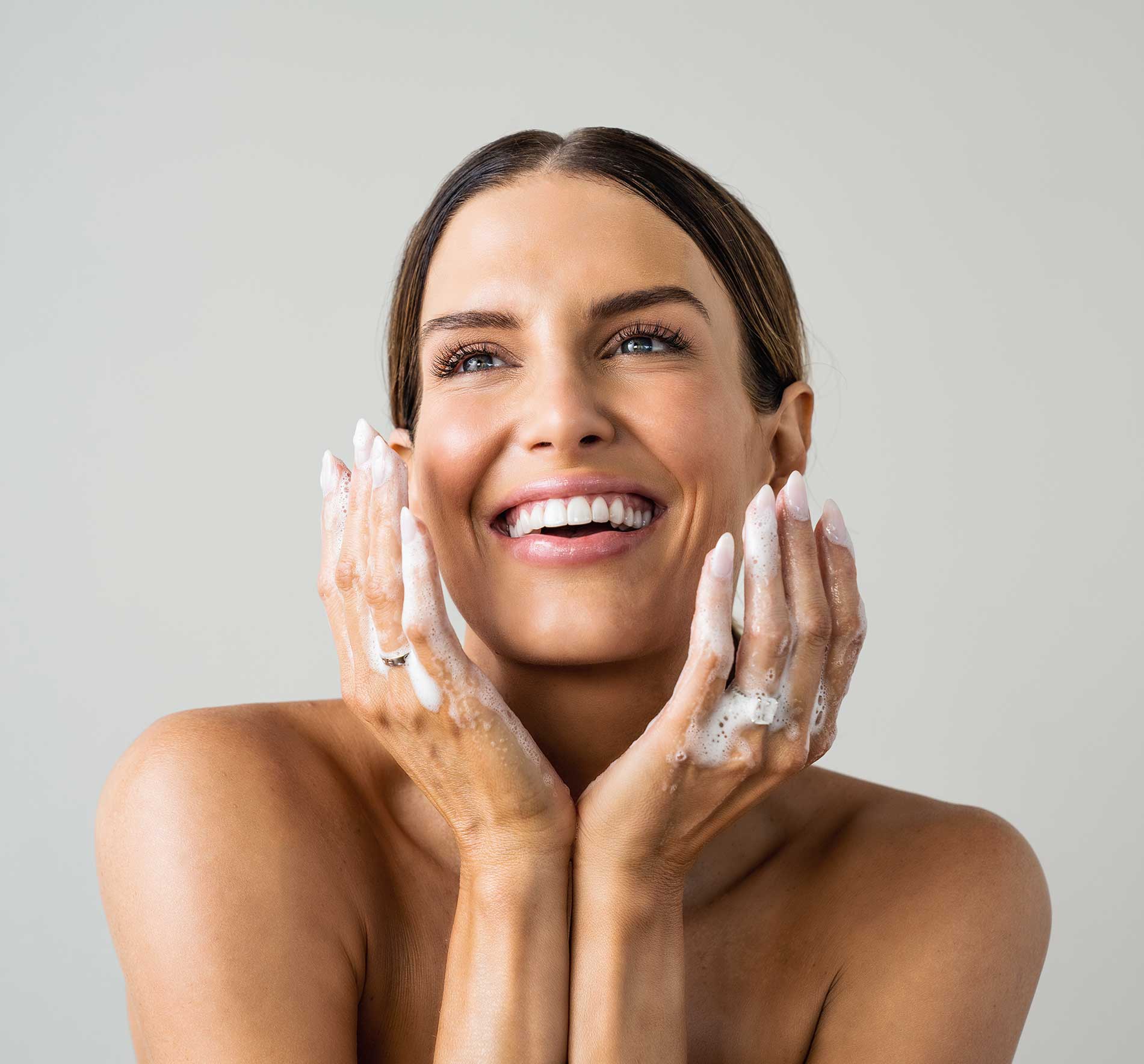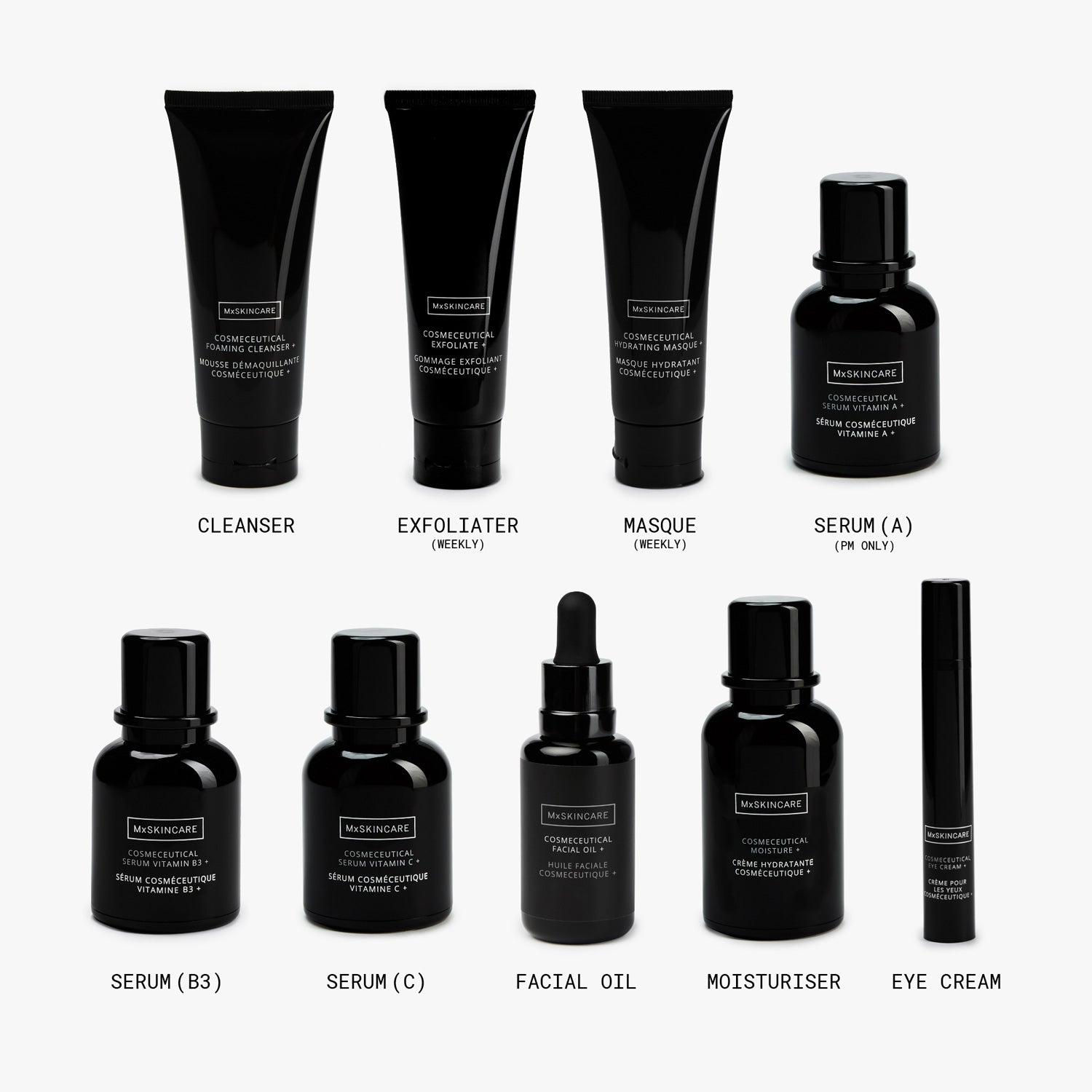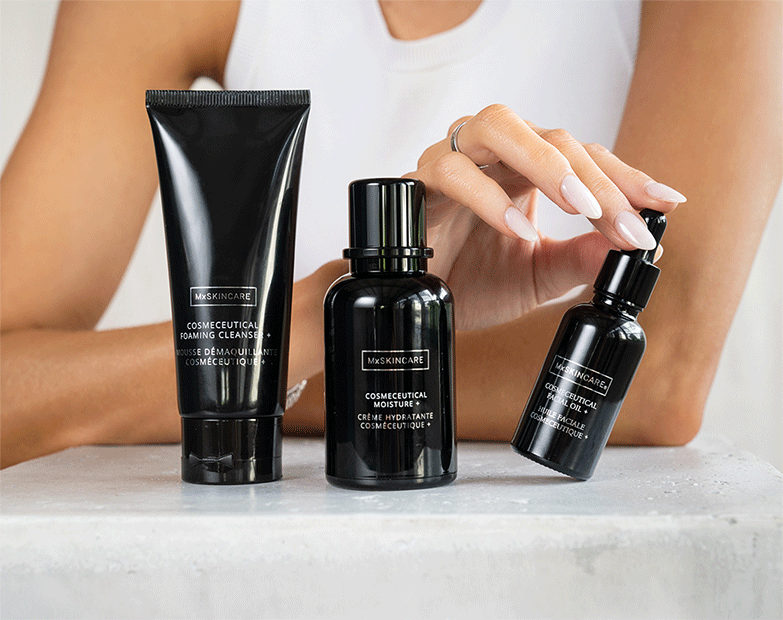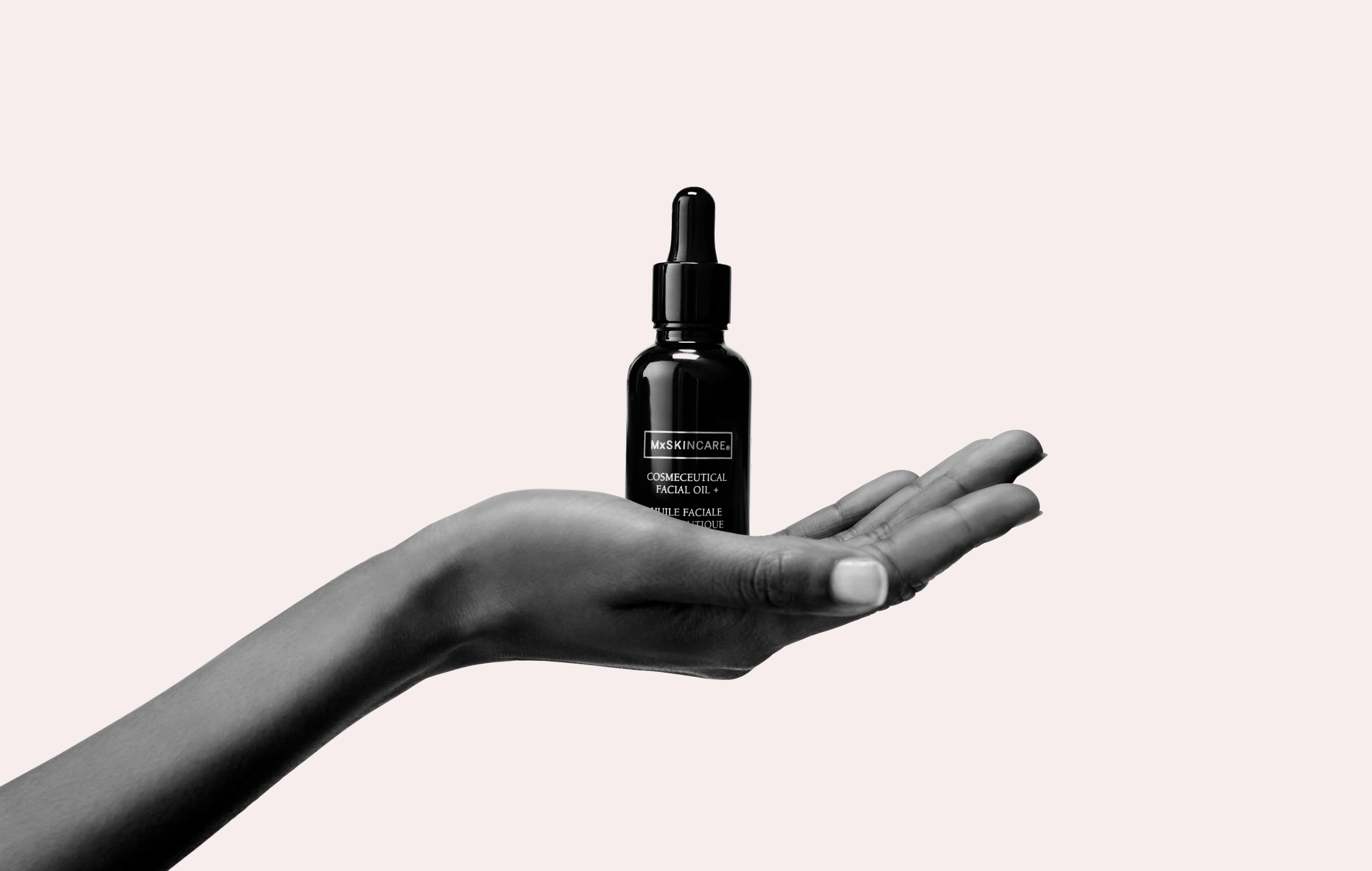
Cleanse, Don't Scrub
Your 5-part guide to silky smooth skin.
Scrubbing skin until it squeaks is never a good idea. There is a right way (and a wrong way) to slough away that rough outer layer. This is how you do it.
Nothing jumpstarts skin like a deep clean that removes dirt, debris and dead skin cells. And that, in a nutshell, is why exfoliation is king when it comes to clearing the clutter, preventing clogged pores that can turn into breakouts, and brightening the complexion.
Another benefit of regular exfoliation is that skincare products are better absorbed, meaning active ingredients can better penetrate skin to go about their business of boosting skin health.
Exfoliation also helps to increase cell renewal – something that slows with age – to keep skin vibrant. Long-term exfoliating can also help boost production of collagen, the protein that supports skin and keeps it firm.


5 Key Questions About Exfoliation
1. WHAT'S THE BEST EXFOLIANT?
There are two main types of exfoliant.
Mechanical exfoliants come in the form of a scrub, typically with granules, and remove dead skin cells via friction, but can be too aggressive for sensitive, dry or inflamed skin.
Chemical exfoliation tends to be gentler on skin as it uses chemicals such as alpha hydroxy acids (AHAs) to loosen and dissolve the rough outer layer.
Formulated for all skin types, Mx Skincare Cosmeceutical Exfoliate+ is a chemical exfoliant that uses lactic acid (an alpha hydroxy acid) to break down dead surface cells while also reducing pigmentation, softening the appearance of lines and improving skin texture.
Lactic acid attracts moisture as it exfoliates, plumping skin as it dissolves dead skin cells, never drying the skin.
2. HOW OFTEN YOU SHOULD EXFOLIATE?
If skin becomes red, irritated, peels or flakes following exfoliation, there is a good chance your exfoliant is too harsh for your skin, or you are exfoliating too often. Skin experts recommend exfoliating face, neck and décolletage on a weekly basis for best results.
As a general rule, the more aggressive the type of exfoliant treatment, the less often you would need to do it.
3. HOW TO EXFOLIATE FOR BEST RESULTS?
Always exfoliate on a clean skin.
If using a mechanical exfoliant in the form of a scrub (careful it's not too harsh), apply a small amount of exfoliate to a wet face and massage in gentle circular movements over face, neck and décolletage and then rinse off.
If using a chemical exfoliant like Lactic Acid (which is gentle yet very effective - see the Mx Cosmeceutical Exfoliate +)....after cleansing, pat skin dry and apply a thin layer to face, neck and decolletage avoiding the immediate eye area. Leave on for 10 minutes then remove with a warm wet face cloth.
4. WHEN SHOULD YOU SKIP EXFOLIATING?
Never exfoliate if skin is sunburned or you have open sores or cuts as exfoliating could further irritate the skin and cause scarring. The same goes if you have chronic, inflamed acne.
Also avoid exfoliating if you have cold sores as the infection could spread.
5. AND THE IMPORTANT LAST STEPS?
Once you have gently dried skin after exfoliating, apply serums, facial oil and moisturiser as the final steps.
By removing the dead outer layer, you are ensuring skin is ready to receive the maximum benefits of serums, facial oil and moisturiser, and skin will positively glow!






